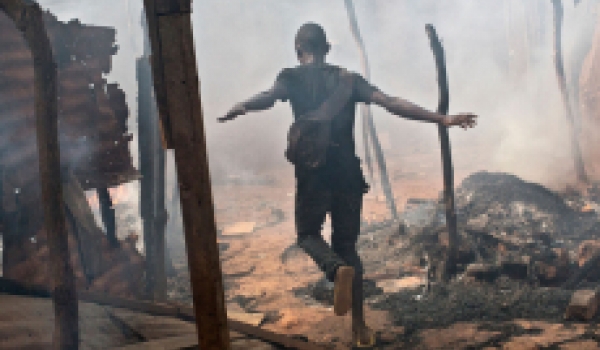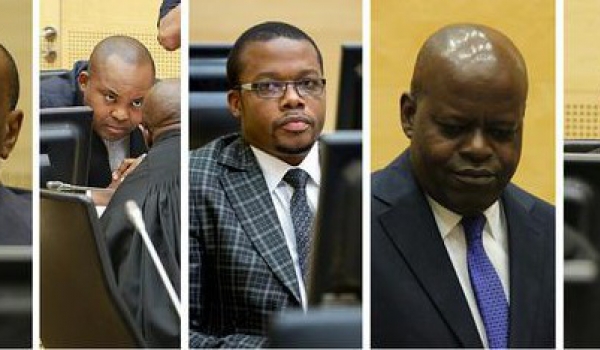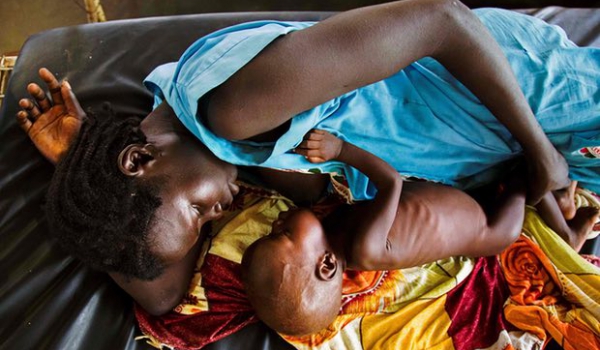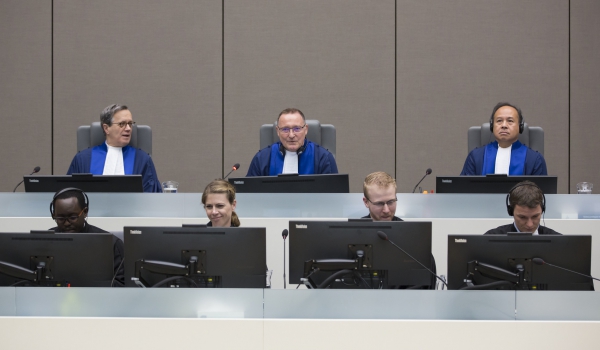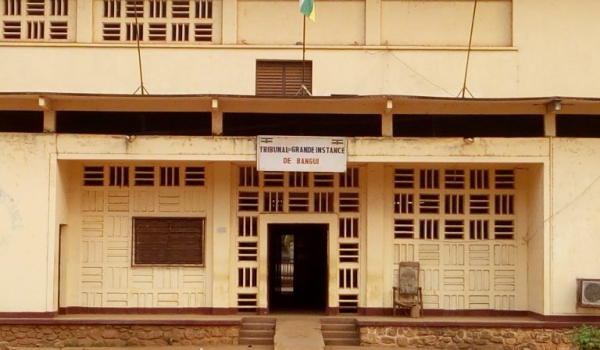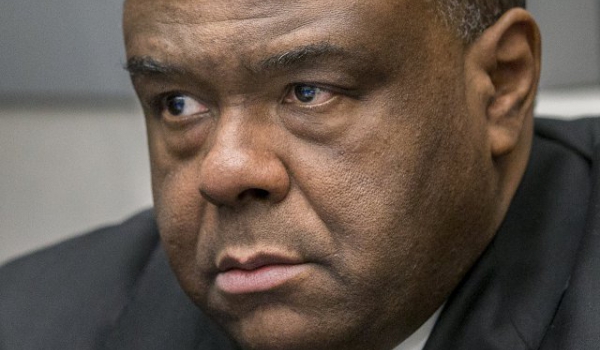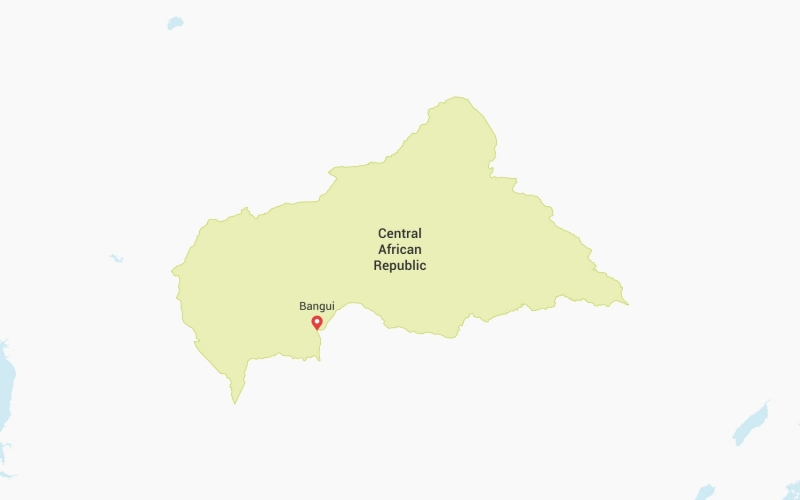
- Conference on the future of International Criminal Justice in Africa
- Statement of the Central African Coalition for the ICC
- Déclaration des Coalitions de l’Afrique Francophone pour la Cour Pénale Internationale «CAF CPI» relative à la remise du suspect Maxime Jeoffroy Eli MOKOM GAWAKA à la CPI
- Statement of the African Francophone Coalitions for the International Criminal Court (AFC ICC) on the surrender of suspect Maxime Jeoffroy Eli MOKOM GAWAKA to the ICC.
- Declaration de la Coalition Centrafricaine pour la Cour Pénale Internationale relative au transfert de Sieur Mokom a la CPI
- Press release on Mahamat Said's Court Appearance
ICC investigation into 2002-03 violence
In May 2007, the ICC Prosecutor opened an investigation into war crimes and crimes against humanity allegedly committed in the country since 1 July 2002, with a particular focus on violence from 2002-03. In 2016, the single main case from the CAR I situation—against former rebel commander and later Congolese Vice-President Jean Pierre Bemba. In 2016, Trial Chamber III of the ICC convicted Bemba to 18-years prison sentence for charges of crimes against humanity and war crimes. However, in 2018, the Appeals Chamber of the Court reversed the conviction because it found two serious errors that affected the decision of Trial Chamber II. First, the judges of the Appeals Chamber ruled that the Trial Chamber had erroneously convicted Mr. Bemba for specific criminal acts that were outside the scope of the confirmed charges. Second, the judges of the Appeal Chamber found that the Trial Chamber erred in its assessment on whether Mr. Bemba took all necessary and reasonable measures to prevent, repress or punish the commission of the other crimes allegedly committed by his subordinates. The judgment, in this case, was final but Jean Pierre Bemba remains in detention on account of another case. He is alleged of witness-tampering and along with four associates he faces charges for offenses against the administration of justice.
The CAR's transitional government made the second ICC referral in May 2014, amid allegations of sectarian violence between the Muslim Séléka and Christian anti-Balaka groups, which have been battling for control of the country since a failed 2012 coup attempt. In September 2014, following a brief preliminary examination, the ICC prosecutor opened an investigation into alleged grave crimes committed in the CAR since 1 August 2012.
The CAR has often noted the weaknesses of its national justice system due to years of conflict, resulting in a lack of human and material resources to handle investigations into complex grave international crimes.
Special criminal court - but not for presidents
In April 2015, the CAR’s National Transitional Council approved the establishment of a Special Criminal Court to investigate and prosecute those responsible for atrocity crimes in the country since 2003. Lawmakers, however, decided against adopting provisions prohibiting immunity for heads of state and senior government officials.
Victims, civil society, the UN Security Council, and national authorities have long lamented the obstacles to national justice for victims of grave crimes. The CAR ratified the Rome Statute in October 2001, and in 2010 parliament adopted legislation introducing ICC definitions of genocide, crimes against humanity, and war crimes into the criminal code.
Civil society activities
Through the Central African Coalition for the ICC, civil society – including lawyers, NGOs, and victims’ associations – has been actively engaged in awareness-raising on the ICC and rule of law and information exchange with the ICC since 2007, and has been instrumental in advancing the special hybrid court.
Watch Human Rights Watch and National Geographic's collaboration telling the story of the crisis in Central African Republic:
